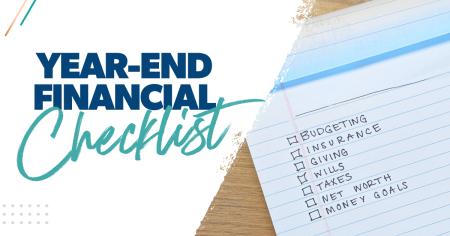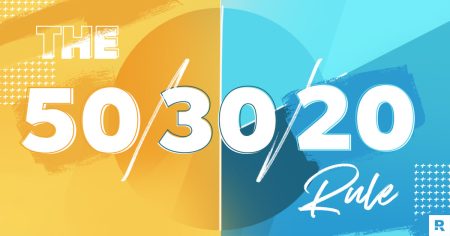In recent years, the gig economy has experienced explosive growth, driven by technological advancements, an increasing desire for flexible work arrangements, and often remote work. Many individuals are now relying on freelance, contract, or part-time jobs to earn a living. While the gig economy offers numerous benefits such as autonomy, variety, and the potential for higher income, it also comes with its own set of challenges. One of the most significant challenges gig workers face is managing their irregular income.
Understanding the Nature of Irregular Income
Irregular income is characterized by fluctuations in earnings from month to month. Unlike traditional salaried jobs, where employees receive a predictable paycheck, gig workers often experience periods of feast and famine. This variability can make it difficult to budget, save, and plan for the future. However, with careful planning and disciplined financial habits, you can achieve stability even with an unpredictable income.
Creating a Realistic Budget
The foundation of managing irregular income is creating a realistic budget. Start by tracking your income and expenses over a few months to understand your financial patterns. Identify your essential expenses, such as rent, utilities, groceries, and transportation. These are the non-negotiable costs that you need to cover every month.
Next, determine your discretionary expenses, which include things like dining out, entertainment, and travel. These are the areas where you can cut back if necessary. When budgeting, aim to base your spending on your lowest monthly income rather than your average or highest income. This conservative approach ensures that you can meet your obligations even during lean months.
Building an Emergency Fund
An emergency fund is a critical safety net for anyone with irregular income. Aim to save three to six months’ worth of essential expenses in a separate, easily accessible account. This fund will provide a buffer during periods of low income or unexpected expenses, giving you peace of mind and financial stability.
To build your emergency fund, set aside a portion of your income each month, even if it’s a small amount. Consistency is key. Automating your savings can make this process easier and more reliable. When you receive a higher-than-expected payment, consider contributing a larger portion to your emergency fund to expedite its growth.
Diversifying Your Income Streams
Relying on a single source of income can be risky in the gig economy. To mitigate this risk, consider diversifying your income streams. This might involve taking on multiple gigs, freelancing in different fields, or developing passive income sources such as investments or even online businesses. Please make sure you don’t overextend yourself though. Check your schedule before accepting any more jobs to ensure there is no double booking scheduling or that there is enough time in general to complete the additional gig you signed up for.
Diversification not only provides additional financial stability but also opens up new opportunities for growth and learning. By expanding your skill set and exploring various income avenues, you increase your chances of maintaining a steady cash flow.
Practicing Consistent Invoicing and Follow-Up
For freelancers and contract workers, timely invoicing and follow-up are essential for managing irregular income. Establish a routine for sending invoices promptly upon completion of a project or at regular intervals. Clear communication with clients about payment terms and deadlines can help ensure timely payments.
If clients are late in paying, don’t hesitate to follow up with gentle reminders. Maintaining professionalism and persistence in these interactions is crucial. Consider buying invoicing software to streamline the process and track payments more efficiently. It could be a good investment for your business.
Planning for Taxes
One of the most overlooked aspects of managing irregular income is tax planning. Unlike traditional employees, gig workers are responsible for setting aside and paying their own taxes. It’s important to understand your tax obligations and set aside a portion of your income for taxes each month.
Consider consulting with a tax professional who can help you estimate your tax liability, identify deductions, and navigate the complexities of self-employment taxes. Some freelancers find it helpful to open a separate savings account specifically for tax payments to avoid any unpleasant surprises during tax season. Please do your research, consult with an expert if needed, and find what works best for you.
Health Insurance and Retirement Planning
Gig workers often lack access to employer-sponsored benefits such as health insurance and retirement plans. However, it’s crucial to prioritize these aspects of your financial well-being. Research health insurance options available through the marketplace, professional associations, or freelance organizations.
For retirement planning, consider opening an Individual Retirement Account (IRA) or a Solo 401(k). Contributing regularly to these accounts, even in small amounts, can help you build a nest egg for the future. Additionally, some gig platforms offer benefits packages that you might be eligible for, so it’s worth exploring these options.
Staying Financially Educated
Finally, staying informed about personal finance is essential for managing irregular income. Regularly read books, attend workshops, webinars, and follow financial blogs to enhance your knowledge. Understanding concepts such as budgeting, investing, and tax planning will empower you to make informed decisions and achieve financial stability.
Challenging But Possible
Managing irregular income in the gig economy can be challenging, but with the right strategies, it’s entirely possible to achieve financial stability and peace of mind. By creating a realistic budget, building an emergency fund, diversifying your income streams, practicing consistent invoicing, planning for taxes, securing health insurance, and prioritizing retirement savings, you can navigate the uncertainties of gig work with confidence. Stay proactive, disciplined, and financially educated to make the most of your gig economy journey.
If you’re struggling to pay off debt, ACCC can help. Schedule a free credit counseling session with us today.
Read the full article here









